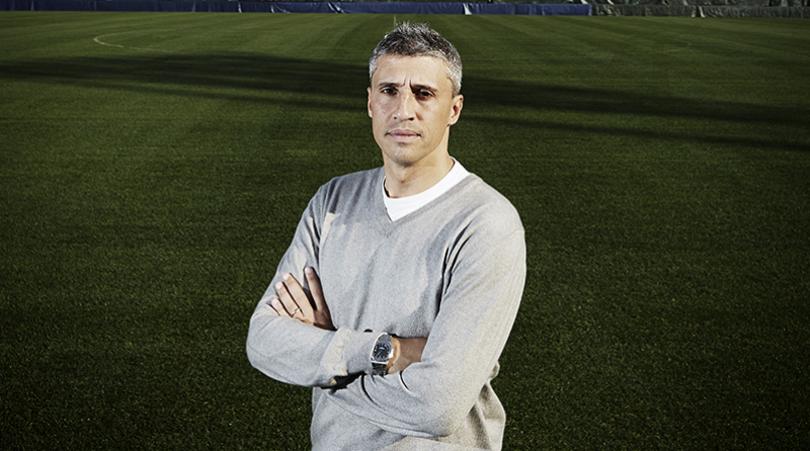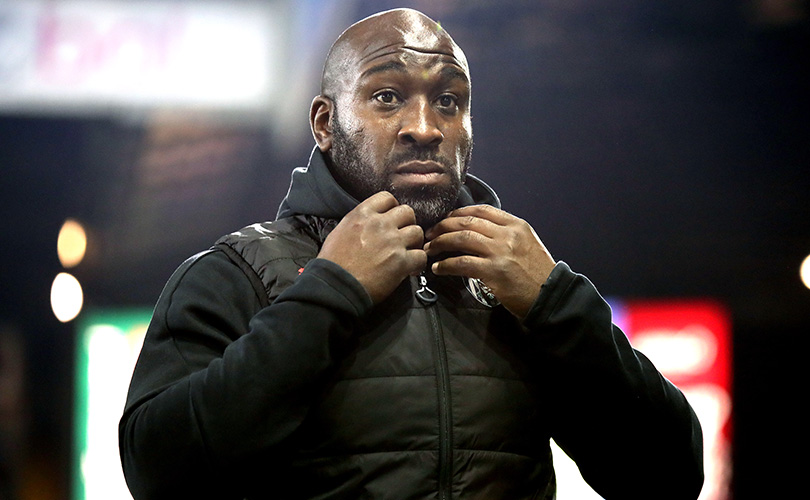The big interview: Pierre van Hooijdonk – "I should've waited before going on strike at Forest... but Dave Bassett was a snake"
Was he madder than Di Canio? Does he regret going on strike at Forest? Why does he not get on with Van Persie? And could a cat really manage a football club? Your questions answered…
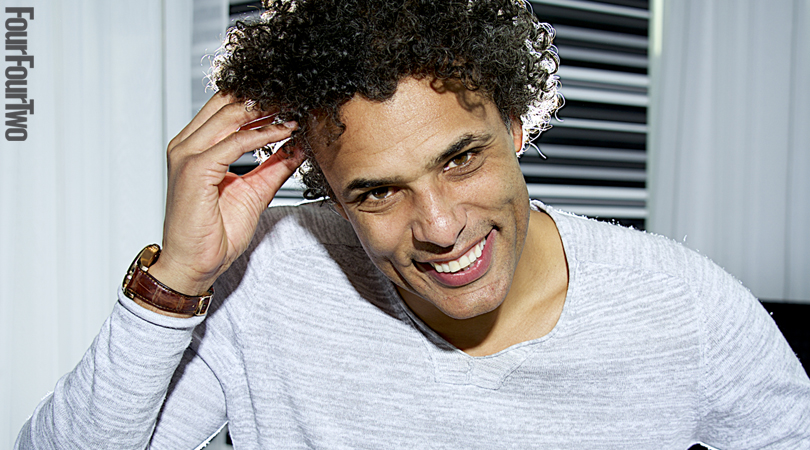
“People in England think I’m a bad guy, an a**hole, but I’m not,” Pierre van Hooijdonk explains as he puts his crutches to one side and sits down with a smile to chat to FFT.
The forward made plenty of headlines during a sometimes controversial career – his three-month strike at Nottingham Forest remains one of the most infamous sagas in Premier League history – but the former Dutch Footballer of the Year is ready to tell his side of the story when we meet at the WestCord Fashion Hotel on the outskirts of Amsterdam.
The 46-year-old arrives with his foot in plaster, having damaged ankle ligaments playing amateur football a few days earlier, but the striker-turned-television pundit is as outspoken as ever. Indeed, he’s soon pondering what would happen if all football managers were eventually replaced by cats. Dave Bassett beware, he’s not a fan...
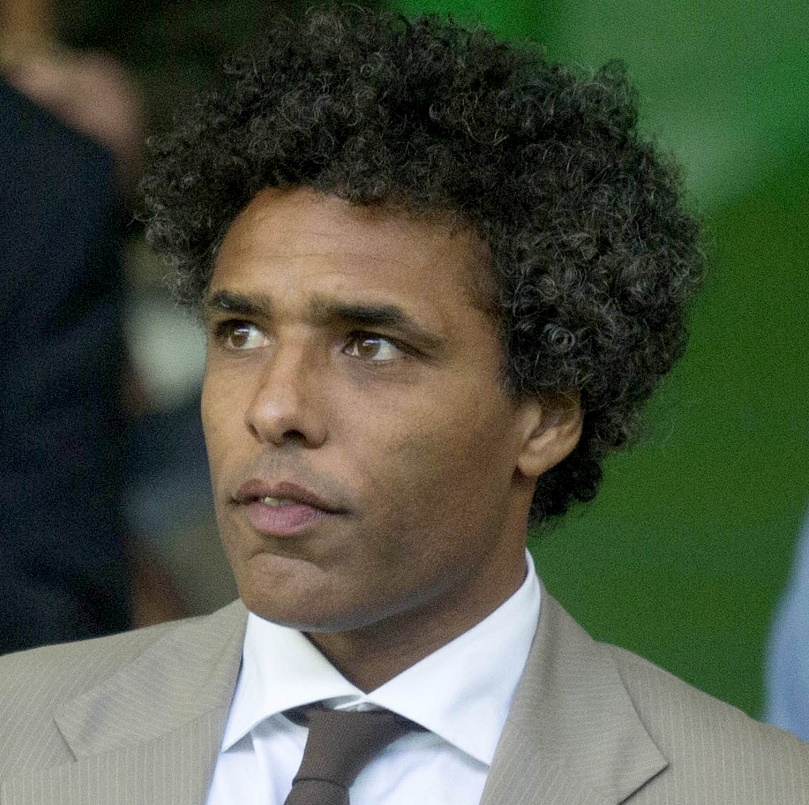
Full name: Petrus Ferdinandus Johannes van Hooijdonk
Date of birth: November 29, 1969
Height: 6ft 4in
Position: Striker
Place of birth: Steenbergen, Netherlands
Why did NAC Breda release you as a young teenager, but then re-sign you at 21?
Martien, Breda
I was originally a midfielder, but when I was 14 they said that I wasn’t good enough for them. That was hard. At that young age you are living a dream and when they tell you it’s over, you believe it’s over, because you expect them to have the vision to say ‘good’ or ‘not good’ about you. They were right, I wasn’t one of the best midfielders. But when they signed me again, I was a striker and scoring a lot of goals. Going back to the team you supported from childhood, the team who decided not to continue with you, there is no better feeling.
What was it like to make your Netherlands debut while playing your club football with what was a relatively unfashionable team?
Wim Nijsink, Rotterdam
I’m still the last player to be capped while playing for NAC Breda. I came on for 15 minutes for the national team and I was thinking: ‘I don’t mind if this is the last time, I’ve been capped’. I could say: ‘Hey, have you played for Holland?’ I was there almost like a fan thinking: ‘Look, there’s Bergkamp! There is De Boer!’ Clarence Seedorf made his debut in the same game. We shared a room and I’ll never forget him taking his clothes off to reveal a physique that was unbelievable! I’d done so much just to get a bit of muscle when I was younger – I worked in a sports shop, and three mornings a week I’d train at an army base when the shop wasn’t busy. I said to Clarence: ‘Are you working out?’ He said: ‘Not at all’. He was 17 and for him it was all just natural.
Get FourFourTwo Newsletter
The best features, fun and footballing quizzes, straight to your inbox every week.
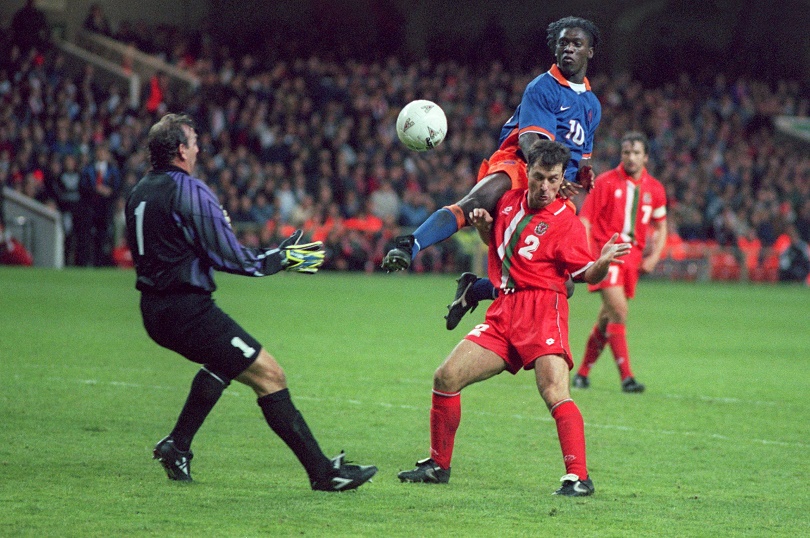
How did you end up moving to Celtic in 1995? Did you know much about the club before you arrived at Parkhead?
Stuart Booth, Glasgow
It was two weeks after my Holland debut. Clubs felt they could buy me then, because I’d been stamped as a national team player. That was how I was presented in Glasgow – they’d signed a Dutch international, even if he’d only played for 15 minutes. I didn’t know much about Celtic, but I played Subbuteo as a kid and I had Celtic, because the strip was unusual. There were only seven players though, because I always broke them.
Celtic hadn’t won a trophy for six years when you arrived. Did you know what it meant when you popped up with the winning goal in the Scottish Cup final?
Ewan, Hamilton
I scored my first goal nine minutes into my debut against Hearts and it was one of my best goals, so the fans felt: ‘OK, this guy is a decent player’
When I arrived they had just lost the League Cup final against a First Division team (Raith Rovers) and I was shocked by the standard. If we’d played NAC Breda, we’d have lost big time. I scored my first goal nine minutes into my debut against Hearts and it was one of my best goals, so the fans felt: ‘OK, this guy is a decent player’. Looking at the goal, they probably thought I was the new Maradona! There was big pressure on our Scottish Cup run and in the final we played Airdrie, another First Division team. Scoring the winner really made me a fans’ favourite. People came up to me crying, people who had gone through those six years. That feeling was incredible and from then on we became a proper team. Within months we had a team that would have hammered NAC Breda.
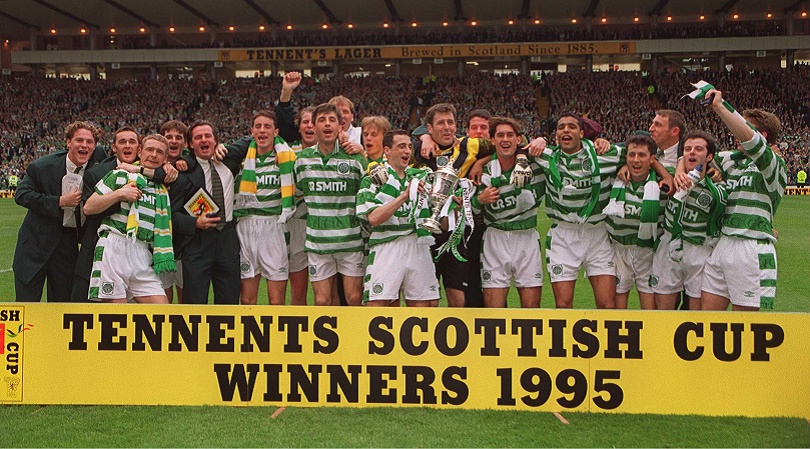
Paolo Di Canio, Jorge Cadete and yourself were called the Three Amigos during your time at Celtic. Who was the maddest?
Scott, Kilmarnock
People forget Andreas Thom, too. He was calmer but he was one of the best players I played with. Jorge was a pure striker - goals, goals, goals. Sometimes they used to tell me: ‘get in the f***ing box’ because I wanted to play with the ball at my feet, but when Jorge arrived I played the same way and no one noticed because he was there. Paolo was an example for me. He went to the gym every day before training, so I did too. He was hilarious, too – he’d shave his pubic hair in front of us all in the dressing room and we’d be saying: ‘What are you doing?’. But he gave the team a bit of arrogance. He was class.
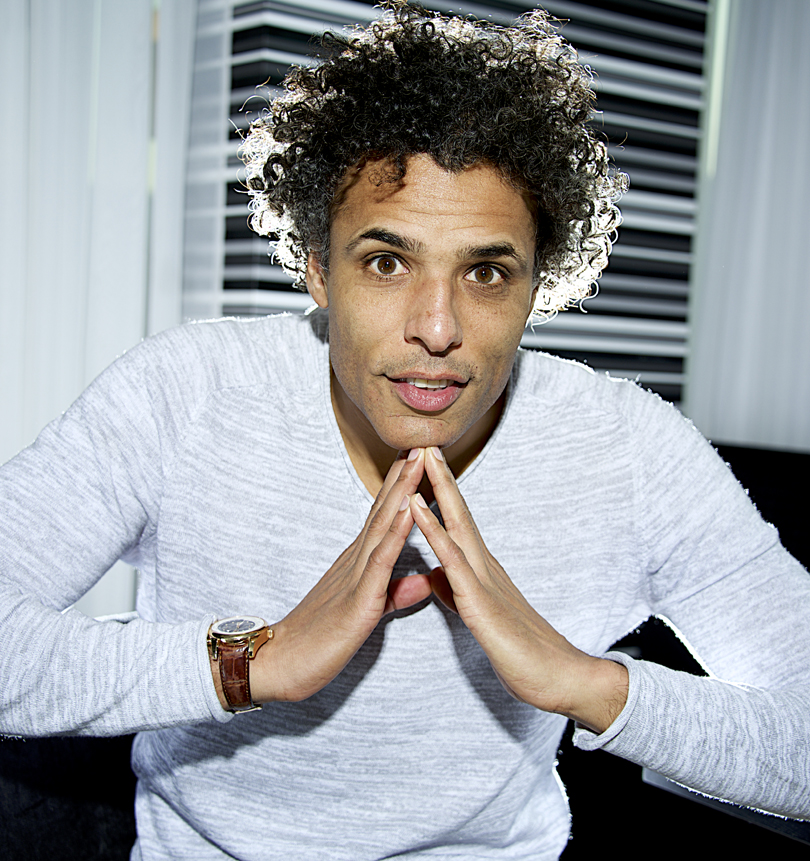
How did it feel when Andy Goram saved your penalty in the Old Firm match in 1996?
Stephen Mullan, via Facebook
I missed some penalties in my career, but that was one of the ones that mattered, in a season when we missed out on the title even though we only lost one league game. I enjoyed the games with Rangers, but the rivalry could go a bit far. Once I was driving to the city from the training ground. I was at some traffic lights and a teenager opened my door and spat at me. I enjoyed it at Celtic, but I was an easy target because you could always see me from a distance.
Goram saves Van Hooijdonk's penalty
Would you have changed anything about your departure from Celtic?
Paul Donnelly, Valencia
If I hadn’t been in the national team, I would probably have stayed at Celtic longer, but my aim was to play at the World Cup, and I did
No. I had an agreement when I signed that if I did the business, the club would knock on my door very soon. I wasn’t earning a lot, but I went there for the challenge. But after the cup goal and scoring a lot the year after, I didn’t hear anything. Eventually they said: ‘Yes, you can get more money if you extend your contract’. I said: ‘That’s not what we agreed’. After that they announced they’d doubled my wages. It was a great bit of PR, but double was still only half of what the best players were getting. I just wanted to be up there where I belonged – with Thom, Di Canio and Cadete. They put me in the reserves to put pressure on me and I asked Guus Hiddink: ‘What should I do?’ He said he could only select me for the national team if I was playing. This was 1997 and in 1998 it was the World Cup. I thought: ‘If I have one chance of playing in a World Cup, it’s now’. If I hadn’t been in the national team, I would probably have stayed at Celtic longer, but my aim was to play at the World Cup, and I did.
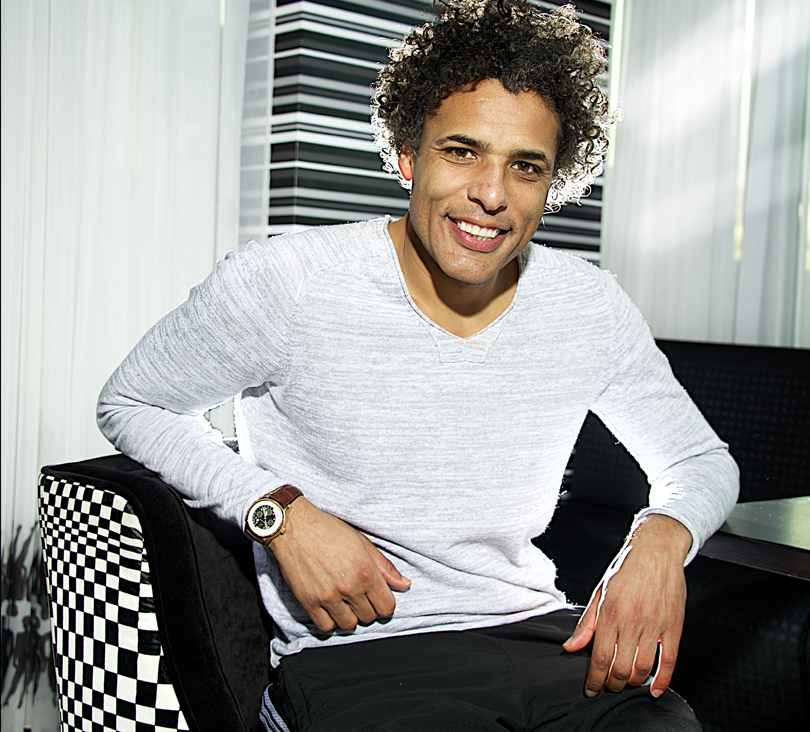
Do you have any regrets about your comment while at Celtic that ‘£7,000 is enough for a homeless person, but not enough for a top-class footballer’?
Stephen McIlroy, Greenock
I can explain. I had a column in a paper, where someone would call me and write it up into a column. I wanted to make a comment to explain to the supporters that I wasn’t talking about peanuts. I said: ‘OK, the offer they have made is a lot of money for ordinary people, but for a top Celtic player it isn’t, because people like Di Canio and Thom are paid more’. I’ll never forget when I woke up the next day, I would always put Radio Clyde on and they said: ‘After the break, news and sport, with Van Hooijdonk talking about the homeless’. I thought: ‘What?’ My wife asked me: ‘What have you said?’ Then I realised it had come from the column, even though I hadn’t said that. I thought: ‘How can I defend myself from this?’ I couldn’t do anything, I just had to take it. I was stupid not to ask them to send the column to me. That was my last column.
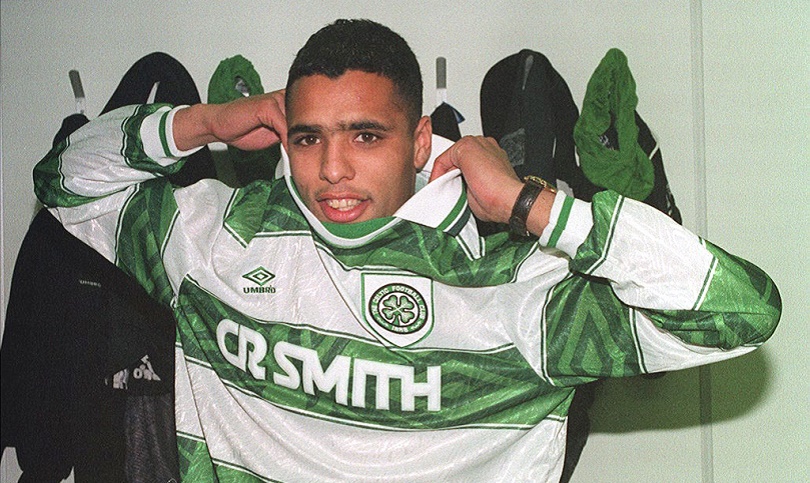
You scored 34 goals to help Nottingham Forest to promotion in 1997-98. Was that the best season of your career?
James, Nottingham
Football-wise it was great, but on the professional side I didn’t want to play five-a-side all the time during training
Not the best, but it was good. When I arrived they were rock bottom of the Premier League. We got relegated that season, but we hardly lost any of the players. Anyone could have got promotion with that team. Although some of the stadiums were basic, for me it was football culture. It gave me a good feeling going to Stockport or Bury. Football-wise it was great, but on the professional side I didn’t want to play five-a-side all the time during training, where the goalkeeper plays right wing and the centre-half is in goal. I wanted to keep improving. During the week you’re supposed to learn and I didn’t really learn anything.
You played at the 1998 World Cup. Would Holland have beaten Brazil in the semi-final if the referee hadn’t been Ali Bujsaim?
Andre Dutra, Brazil
Yes, we should have been in the final. I came on at 1-0 down with 15 minutes left. Patrick Kluivert equalised and then in the last seconds Wim Jonk put the ball across, I made a run and 1,000 per cent I was going to get a free header, but I was pulled. I heard the referee blow the whistle and I thought: ‘Penalty!’, but he gave me a yellow card for diving. I still have a picture showing the foul. I scored against South Korea in the group and that’s one of those moments you treasure forever. It felt like a present from God for the way I was playing and training, but also for my social role in that group because I am not an enemy of anybody.
You had the chance to become a Forest legend, so why did you go on strike?
Paul Buttery, Valencia
If you were to change all the managers in the league for cats, at the end of the season there will still be one champion and three will get relegated
Why? In December 1997 I had the opportunity to go to PSV and I told [Dave] Bassett I wasn’t satisfied with the whole setup. He said: ‘I can’t let you go, we want to get back to the Premier League, you’re top goalscorer, I cannot defend myself if I sell you’. I said: ‘OK but I want to go after the season.’ He said: ‘Get us back to the Premier League and we’ll let you go.’ The first time I got upset was when there was a story in the newspaper that Newcastle wanted to pay £7 million and Bassett said: ‘He can only go for £10m’. But £10m in 1997 was ridiculous, that’s like trying to sell a cappuccino for £25 – it’s for sale, but nobody will touch it. I realised they were going to put me in the window like they’d said, but they were going to put a price tag on me that no one was going to pay. He knew I didn’t want to be there, but he told me something in a fake way. I spoke to [Forest director] Irving Scholar, who I respected a lot, and said: ‘It’s nothing to do with money, I’m just not happy here’. We were doing f*** all in training. People say we became champions, but so what? If you were to change all the managers in the league for cats, at the end of the season there will still be one champion and three will get relegated. Does that mean the cat who is champion is fantastic and the three who got relegated are sh*t? It’s about players as well. Scholar said: ‘Let’s see, go to the World Cup’. I did, but there was still no movement. I just decided: ‘OK, if you hurt me, I hurt you’. I didn’t want to hurt the fans, they didn’t create that situation, but I wanted to make a point to the people who were trying to take the p*ss. That’s why I decided to stay home and train there.
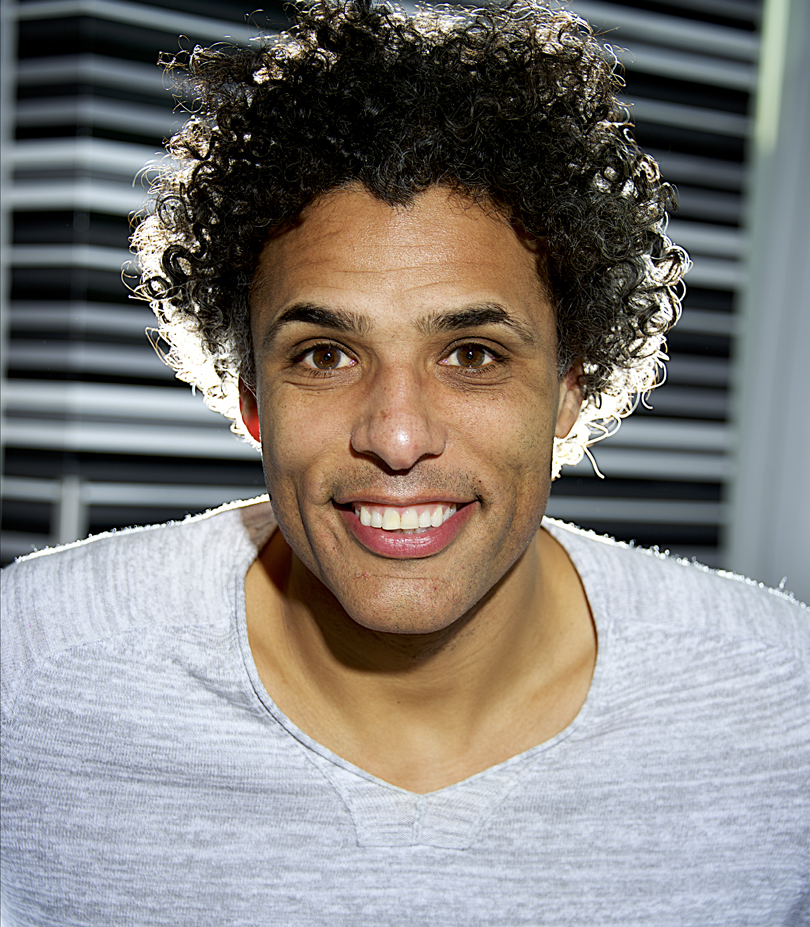
With the benefit of hindsight, do you think going on strike was a wise move?
Gerard Looker, via Twitter
Looking back, I should have waited until the end of August. But would they have sold me then? I don’t think so. People said I went on strike because they sold some players – that was another reason, but it was not the main reason. People say players should be pleased to play and get money, then they always use the fans to say you should be happy to play for people who have hardly got anything. But it still doesn’t give you the right to screw me around. I had no problem with the club fining me two weeks’ wages every time that I wasn’t there. I didn’t want to get paid for doing nothing, but I wanted a solution to it all. In the end I had to come back after agreeing with Irving Scholar in Monaco that they would sell me to a club for a fixed fee of £3.5m.
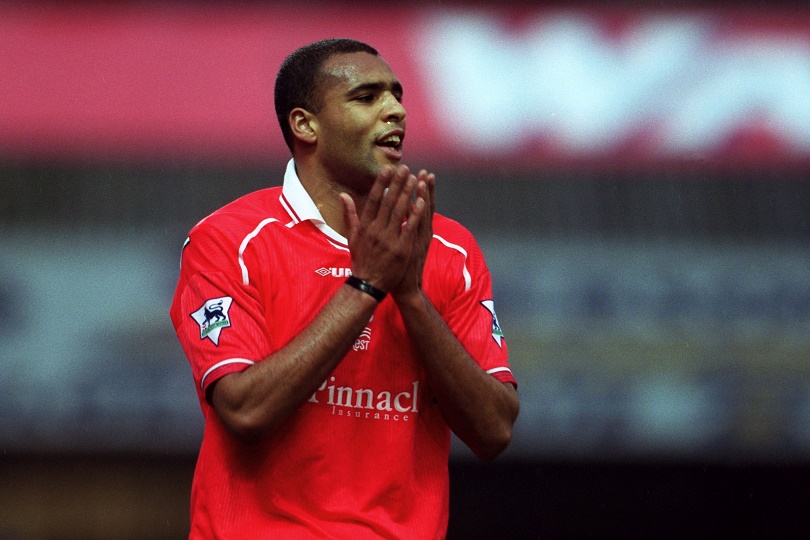
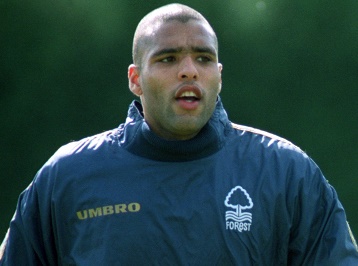
Clubs: 1989-91 RBC Roosendaal 69 games (33 goals); 1991-95 NAC Breda 115 (81); 1995-97 Celtic 92 (56); 1997-99 Nottingham Forest 77 (41); 1999-00 Vitesse Arnhem 36 (28); 2000-01 Benfica 35 (23); 2001-03 Feyenoord 79 (62); 2003-05 Fenerbahce 63 (35); 2005-06 NAC Breda 20 (8); 2006-07 Feyenoord 43 (8)
International: 1994-2004 Netherlands 46 (14)
Playing honours: Scottish Cup 1995; English First Division 1998; UEFA Cup 2002; Turkish Super Lig 2004, 2005; Dutch Footballer of the Year 2002
When you returned to Forest after the strike, did you apologise to the rest of the team?
Nick Dosanjh, Abu Dhabi
Mainly the English players were talking in the press, with some saying ‘he’s a disgrace’. These were my friends until then. When I went back into the Forest dressing room I spoke to everyone and said: ‘Any questions?’ Only one person said anything. Geoff Thomas said: ‘I disagree with what you did’. I said: ‘OK, you disagree, but I have to think about my career’. When I started playing again I gave everything – but that [extra] five per cent you get when you’re buzzing... it wasn’t on purpose but it was missing. The heart wasn’t there any more.
Do you feel in any way responsible for Dave Bassett’s sacking and Forest’s ultimate relegation that season?
Alan Carroll, via Twitter
Would I have really made that much difference, even if I’d played every game? I’m not sure I would have done. He still says that I’m responsible for him getting sacked but I played a major role in getting him promotion. I didn’t sign the players he signed that year, because they weren’t good enough to help him. With me on board, things were not going dramatically better. I was sent off in December and got a two-match suspension, so the manager gave me Christmas off to go home. Then when he got sacked he made out like I’d gone home without permission, which I hadn’t. He was a rat, a snake, and he still keeps saying things about me. He is the worst I’ve come across. People say he was successful with Wimbledon, but he had decent players and maybe he’s a good manager to manage things. But he wasn’t a good coach. We never had a game where we had a tactical accent on attacking or defending, nothing. Just ‘enjoy it’.
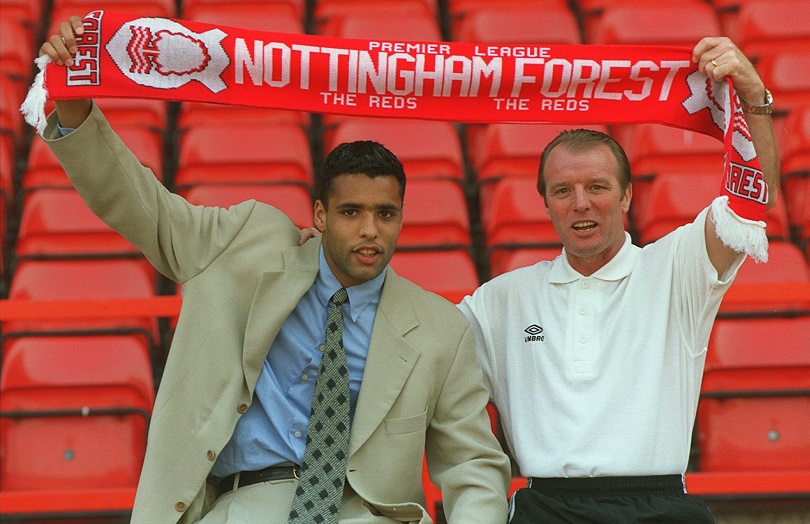
What was it like to be coached by Jose Mourinho in what was the Portuguese’s first managerial job, at Benfica?
Nuno Silva, Sao Paulo
I’m not going to say I expected him to have all the success he’s had, but I recognised his methods from working with Ronald Koeman and Louis van Gaal, because they were all at Barcelona
It was good, but it was completely different to if you are coached by Mourinho now. At that time he was just another coach. I had a very good relationship with him. I’m not going to say I expected him to have all the success he’s had, but I recognised his methods from working with Ronald Koeman and Louis van Gaal, because they were all at Barcelona. Mourinho gave the players a feeling that they would die for him. Everybody liked him, even in the short period of time that he was there. There were elections at Benfica and the president who brought in Mourinho, myself and other players lost. The new president had promised a different coach and Mourinho had to go. I did too, even though I had scored 19 goals for them. They bought me for £3.5m and sold me to Feyenoord for £800,000.
What would you say was the defining moment of your career?
Lewis Andres Woo, Singapore
Winning the UEFA Cup with Feyenoord in 2002. It was so unexpected. The other three semi-finalists that year were Borussia Dortmund, Milan and Inter - and normally you would say that we were not in the same class. I scored two against Rangers earlier in the competition, which of course gave me satisfaction, and in the 93rd minute against PSV in the last eight. Then I scored two in the final against Dortmund. Everything fell right that year.
Van Hooijdonk's dramatic late leveller against PSV
Fans in Turkey are known for being particularly passionate – what was the craziest thing that happened during your two-season spell with Fenerbahce?
Andy, Croydon
The worst was after we played Rizespor. There was a big rivalry between Fenerbahce and Trabzonspor. They really hated each other, and after the game in Rize we had to go by coach along the Black Sea to the airport in Trabzon. There was only a barrier between us and the sea, it was dark, and suddenly there was a noise and the coach swerved. The driver stopped – there was glass, bricks – but we continued, then there was another brick. They had to get police with shields to sit by the window on every row of the bus.
You played with Robert Enke at Benfica and Fenerbahce. How did you react to the news of his suicide in 2009?
Recep, Istanbul
I saw him a couple of times after he left Fenerbahce, then one day I turned on the TV and saw the news. I couldn’t believe it
Robert was my closest friend when I was at Benfica. We got on really well, our wives too. He was a very good goalkeeper and a nice guy. When I moved to Fenerbahce we had a German coach and he brought in Robert. We would drive in to training together. We lost the first game of the season 3-0 against Istanbulspor and Robert didn’t look good for two of the goals. Later that week I get a knock on the door and Robert says: ‘I’m going back to Germany, I’ll call and explain, but I need to rush’. I asked the coach what had happened, I thought it was because the fans were on his back. The coach said he had mental problems and I thought: ‘Yeah, right’. I thought it was an excuse. In the time I knew him, I never saw anything that made me think that he had a problem. I saw him a couple of times after he left Fenerbahce, then one day I turned on the TV and saw the news. I couldn’t believe it. I met his wife at a friendly match for him, and I broke down in tears. I told her I never had any idea. It scares me, I didn’t see it coming.
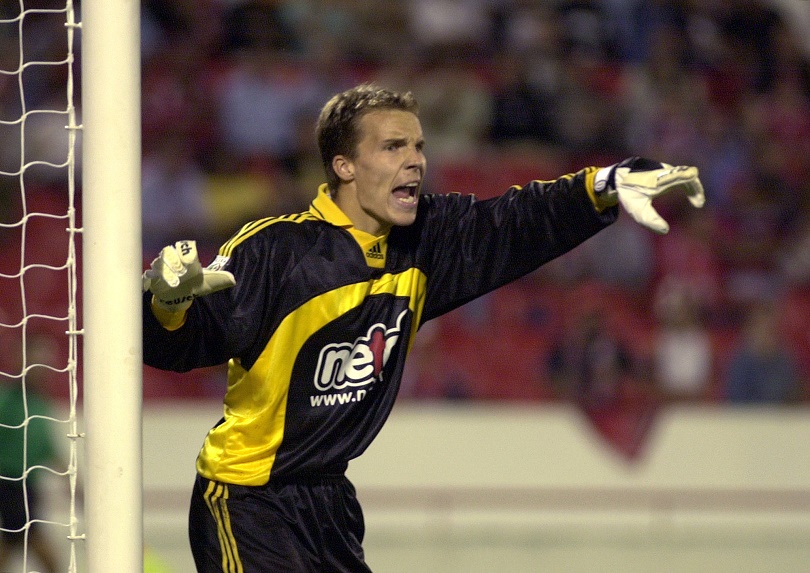
You played with Van Persie at Feyenoord, why did you call him an a***hole last year?
Joe, Melton Mowbray
It was in a certain context, although I did say it. At the World Cup I was doing TV analysis and I thought he had a poor tournament; he scored a great goal against Spain, but he never played as well as he did when Manchester United became champions [in 2012-13]. He presumably thought he’d had a great tournament and later did an interview where he slagged me off. I was asked about that, and of course I didn’t like what he said, so I said: ‘a***hole’. I was just saying what I was thinking at that moment, but that hasn’t changed since. It probably says more about him than me. He was a fantastic talent at Feyenoord and he realised he was already one of the best players at 18, but that does not mean that you can behave like you have been the best player for several years.
Do you think the perception many have of you as a troublemaker is fair?
Ed, Nottingham
The people to answer that are the ones who were in the dressing room with me. Those who I fell out with will say I’m not a nice guy, but one thing they can never say is that I was a bad professional. I gave every club value for money. All the ones who paid money for me could look at the goals I scored and say: ‘Not a bad ratio’. If players earn a lot and do little, you feel you have paid too much. But I don’t think anyone could ever have said that about me.
Do you have plans to become a manager?
Alan, Birmingham
I had a couple of games as Hiddink’s assistant with the Turkish national team and I’ve done my coaching licence. The only one I need to do is the Pro Licence. But it’s not my time yet. I had the opportunity to join AZ Alkmaar as assistant, when Marco van Basten went to the national team. I thought about it, but I do so many nice things now. Do I want to give them all up? My diary would be completely full.
This feature originally appeared in the August 2016 issue of FourFourTwo. Subscribe!
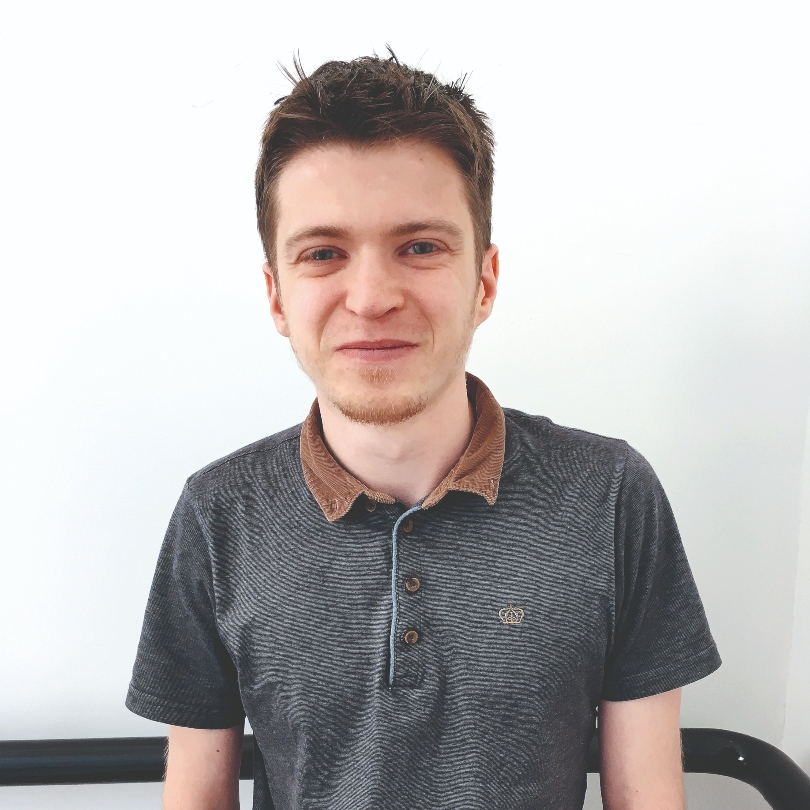
Chris joined FourFourTwo in 2015 and has reported from 20 countries, in places as varied as Jerusalem and the Arctic Circle. He's interviewed Pele, Zlatan and Santa Claus (it's a long story), as well as covering the World Cup, Euro 2020 and the Clasico. He previously spent 10 years as a newspaper journalist, and completed the 92 in 2017.
